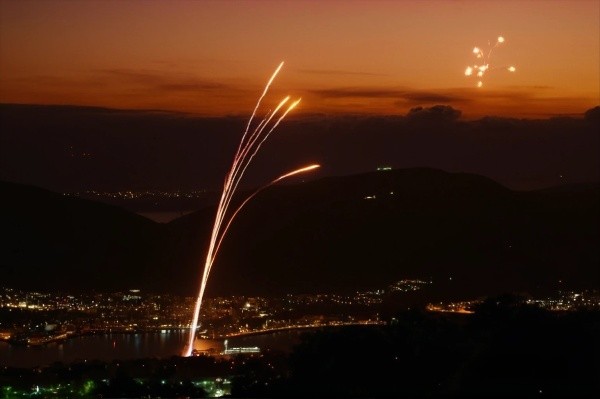Iran’s Plan to Strike Back Against the U.S.
Iran’s Military Preparations Following U.S. Attacks
Loading...

Israel says it attacked southern Lebanon to ‘preempt’ a Hezbollah attack on northern Israeli towns.
Preemptive Strikes by Israel
In a significant escalation of hostilities, Israel launched a series of airstrikes on southern Lebanon early Sunday, claiming the attacks were necessary to preempt a planned assault by Hezbollah on northern Israeli towns. The Israeli military reported that it had detected preparations by Hezbollah to launch a substantial missile attack, prompting the preemptive strikes aimed at thwarting this imminent threat.
Israeli Defense Minister Yoav Gallant declared a "special situation" and imposed a nationwide state of emergency for 48 hours, beginning at 6 AM local time. This decision came amid rising tensions and fears of a broader regional conflict. Reports indicated that Ben Gurion Airport temporarily closed due to the escalating situation, and restrictions were placed on civilians in northern Israel and the Golan Heights.
Hezbollah's Retaliatory Response
In retaliation, Hezbollah announced it had completed the first phase of its counterattack, launching over 320 Katyusha rockets at 11 Israeli military bases, including significant targets in the Golan Heights. The group stated that this barrage was a direct response to the killing of its commander, Fuad Shukr, in late July. Hezbollah's statement emphasized that the rocket fire was intended to facilitate the passage of drones targeting deeper into Israeli territory, indicating a strategic escalation in their military capabilities.
The intensity of the rocket fire marked a notable increase in the scale of Hezbollah's operations, with reports confirming that the group had successfully executed its planned strikes against Israeli military installations. A resident of the southern Lebanese town of Zibqin described the scene as apocalyptic, noting the unprecedented sounds of explosions and aircraft overhead.
Regional Implications and Concerns
The ongoing exchanges of fire between Israel and Hezbollah have intensified since the onset of Israel's war on Gaza in October. This latest round of attacks raises concerns about a potential regional war, especially following the targeted killings of senior commanders from both Hezbollah and Hamas, which have heightened tensions across the Middle East. Analysts warn that the situation could spiral out of control, with both sides seemingly trying to avoid a full-scale war despite the escalating violence.
Sami Nader, director of the Levant Institute for Strategic Affairs, highlighted the precarious nature of the conflict, noting that while both Hezbollah and Israel are engaged in aggressive posturing, there is a mutual desire to avoid a repeat of the devastating 2006 war. Lebanon is currently grappling with a severe economic crisis, making a large-scale conflict particularly undesirable for Hezbollah.
International Reactions
The United States has reiterated its support for Israel's right to defend itself amid the escalating violence. Senior U.S. officials have been in continuous communication with their Israeli counterparts, emphasizing the need for restraint and stability in the region. As diplomatic efforts to resolve the ongoing war in Gaza continue, the situation remains tense, with no clear resolution in sight.
In summary, the recent military actions between Israel and Hezbollah represent a dangerous escalation in an already volatile region. With both sides poised for further conflict, the international community watches closely, hoping for a de-escalation before the situation deteriorates further.
Editor
Iran’s Military Preparations Following U.S. Attacks
Troops remain in five strategic locations, raising fears of renewed tensions and long-term occupation.
Opposition forces have taken control of the capital after a significant offensive. Here is how it unravelled.
